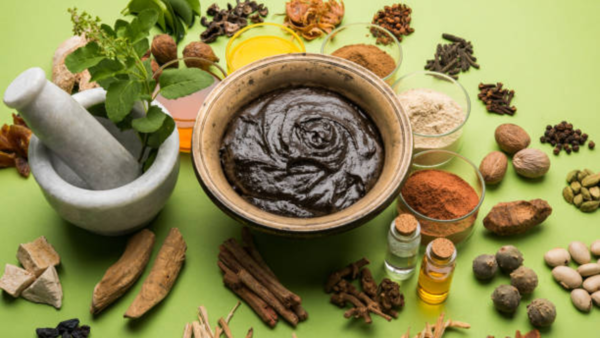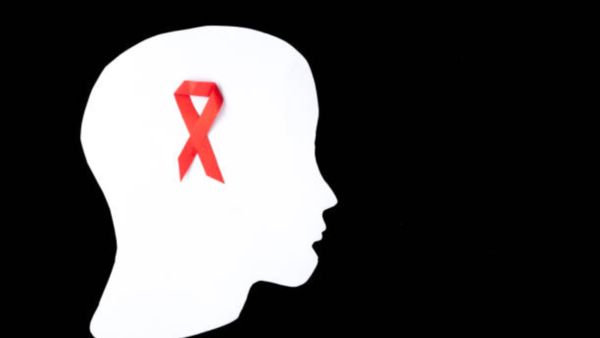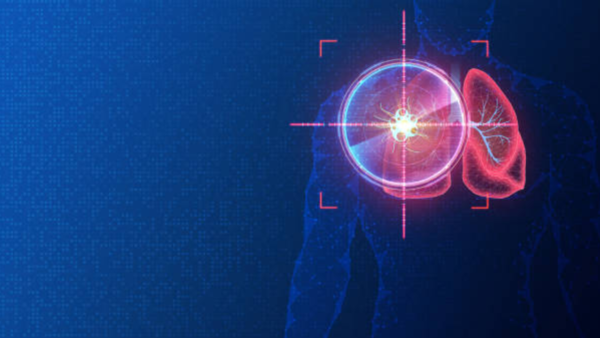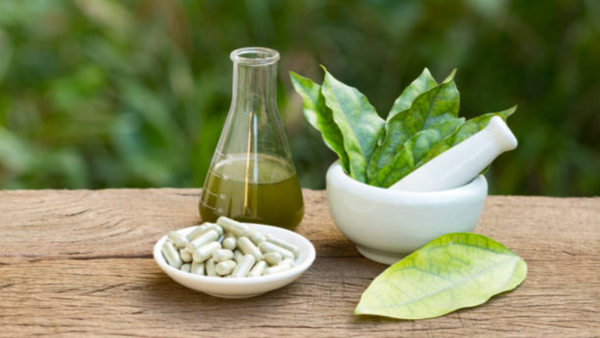A cancer diagnosis profoundly affects not only the individual but also their family and close associates. The emotional toll of the disease extends beyond the patient, creating a ripple effect that touches each member of their support network. Cancer brings uncertainty and fear, challenging the stability and hope of those involved. As they navigate this complex journey, families often explore various options in search of hope and healing.
Despite significant advancements in cancer treatments, barriers still exist in accessibility, availability, and awareness. These limitations often lead individuals and families to consider alternative therapies alongside conventional treatment. One such avenue is Ayurveda, a traditional system of medicine rooted in Indian heritage, focusing on holistic healing and balance.
From an Ayurvedic perspective, cancer reflects a significant loss of cellular and physiological intelligence. Cancer is the result of long-term vitiation of Doshas, including Vata, Pitta, and Kapha, and is indicated by a persistent imbalance of Agni (digestive fire) that extends to the tissue level.
Dr. Rini Vohra Shrivastava PhD., Scientific Advisor – Maharishi Ayurveda
Why do experts feel the need to integrate Ayurveda into oncology?
With cancer rates increasing sharply across the globe, experts are exploring alternative ways to treat the disease.

A report published in the website of Ministry of Ayush highlights the causative factors of cancer in India which includes tobacco, obesity, unhealthy diet, etc. It explains: In Ayurveda, cancer is described as inflammatory or non-inflammatory swelling and mentioned either as ‘Granthi’ (minor neoplasm) or ‘Arbuda’ (major neoplasm). Aggravated Vata and Kapha doshas affect the tissues resulting in development of a round, firm, large, deep rooted, slow growing fleshy growth associated with mild pain. 6 types of tumors have been described in Ayurveda based on the aggravated Dosha and the tissue involved viz. Vataj, Pittaj, Kaphaj, Medoj, Mamsaj and Raktarbuda. Among these Mamsarbuda and Raktarbuda are described as incurable.
How Ayurveda sees cancer?
According to Dr. Rini Vohra Shrivastava PhD., Scientific Advisor – Maharishi Ayurveda, the formation of Granthis and Arbud is among the few mentions of cancer pathophysiology in ancient Ayurvedic texts. From an Ayurvedic perspective, cancer reflects a significant loss of cellular and physiological intelligence. Cancer is the result of long-term vitiation of Doshas, including Vata, Pitta, and Kapha, and is indicated by a persistent imbalance of Agni (digestive fire) that extends to the tissue level. This imbalance leads to the accumulation of Ama, undigested waste, and chronic inflammation, ultimately causing malformed Dhatus (tissues).

Dr Vohra explains: Ayurveda focuses on addressing these imbalances to reinstate the body’s natural intelligence. Conventional cancer treatments can be demanding, often affecting physical, mental, and emotional well-being. Ayurveda offers an integrative path to support patients through these challenges by restoring Dosha balance, healing tissues, and enhancing mental clarity. Rasayana therapies, aimed at rejuvenation and immunity, complement conventional treatments, helping manage side effects such as nausea and appetite loss that can otherwise diminish quality of life. Ayurveda seeks to bring resilience and strength to cancer patients.
Studies have shown Ayurveda’s value in palliative care, offering comfort and mental clarity during and after treatment. Through its combined wisdom of the Vedas and Yoga, Ayurveda empowers individuals to navigate their healing journey with greater strength and inner peace.

To this agrees, Dr Shweta Singh, Ayurveda expert on coto. “Ayurvedic practices place a strong emphasis on dosha balancing detoxification and enhancing innate immunity. In Ayurveda a buildup of toxins (ama) and an imbalance of the body’s doshas (Pitta Kapha and Vata) are frequently associated with breast cancer,” she says and agrees that even though ayurveda can’t replace traditional cancer treatment practices such as chemotherapy, or surgical interventions, Ayurvedic practices help in the reduction of symptoms, enhance immunity and overall health of an individual.
“Ayurvedic treatment minimizes toxicities of chemotherapy and radiotherapy”
In 2023, a group of researchers from Department of Basic Principles of Ayurveda, Shri Ayurveda Mahavidyalaya, Nagpur, Maharashtra and Kapiva Ayurved, Bengaluru found that Ayurveda may be beneficial in the prevention, palliation, treatment, and support of cancer in a variety of ways.

The review study found that Ayurveda supports internal healing, boosts immunity, promotes general health balance and speeds up recovery. The key to curing cancer is early detection and improved screening. Classical approach of Panchkarma, Rasayana, Satwavjay Chikitsa helps in relieving signs and symptoms as well as side effects of chemotherapy and Radiotherapy. It helps to increase the lifespan of individuals and improves quality of life.
Tumor regression in patient with exclusive Ayurvedic rasayana regimen
In April 2022, a study published in Clinical Case Reports, highlighted the case of a 51 year old female patient who was on Rasayana therapy. “We observed significant clinical improvement and regression in tumor size in this patient after treatment. Ayurveda‐based Rasayana therapy may serve as a safe and effective alternative treatment option for lymphoma patients who are not eligible for conventional standard of care,” the report by researchers from Rasayu Cancer Clinic and Rasayani Biologics Pvt Ltd have said. The patient did not receive any conventional treatment throughout the treatment duration.
What are the different Ayurvedic ways to treat (or reduce) cancer?
“Panchakarma Therapy is a crucial detoxification procedure that may reduce the risk of cancer. In order to cleanse the body and restore equilibrium methods like Basti (medicated enema) and Virechana (therapeutic purgation) reduces inflammation and boosts the immune system,” says Dr. Singh.
“Some routinely used herbs for example Turmeric, Guduchi and Ashwagandha have well known anti-cancer characteristics. Curcumin present in turmeric helps in inhibiting inflammatory pathways whereas Ashwagandha can lead cancer cells towards apoptosis. Furthermore, an antioxidant rich diet along with continuous practice of yoga and meditation are also known to reduce stress and inflammation stimulate healing,” she adds.
Discover the Health Benefits of the Rainbow Diet
Apart from this, Abhilasha Sharma, an Ayurvedic practitioner on coto explains, there is rasayan chikitsa and manasrog chikitsa to treat cancer. “Rasayaan like Ashwagandha and Chyawanprash, is used for longevity of life. Rasayaan is prepared from herbs combination of herbs to boost immunity and antioxidants in the body which help to increase the production of new normal cells and repair the damaged cells of the body. Rasayan also prevents damage caused by free radicals by increasing antioxidants which also helps in preventing DNA structures,” she explains and adds about mental health as well. “Ayurveda says that every disease is related to the mind as well. So for the treatment of diseases we need to maintain harmony and strength in mind also. For that mantra chikista, marma chikitsa, devvaprashy chikitsa are also advised,” she adds.
Is Ayurveda safe for cancer?
Ayurveda offers treatments aimed at strengthening the body’s resilience, supporting mental and emotional well-being, and reducing side effects from conventional cancer therapies. While Ayurveda is not a replacement for evidence-based cancer treatment, its complementary approach appeals to those seeking a more comprehensive healing experience. This growing interest highlights the need for increased awareness and integration of alternative therapies, with a focus on scientific validation, to expand the options available to cancer patients and their families.
“Ayurveda has not been fully studied from a U.S. view. Ayurvedic medicines are regulated as dietary supplements in the U.S. They are not regulated as medicines. This means they don’t need to meet the safety standards as medicines,” a report by John Hopkins University says and adds, “some Ayurvedic medicines have herbs, metals, minerals, and other materials. Some of these may be harmful if not used safely. Some Ayurvedic medicines may have toxic materials. These can include lead, arsenic, and mercury. Any herb, mineral, or metal used in this type of treatment may work against standard medicines or other supplements you have been prescribed.”
When used thoughtfully and in coordination with conventional care, Ayurveda can provide emotional and physical support for cancer patients. Ongoing research and open communication with healthcare providers are crucial to ensuring safety, making Ayurveda a potentially valuable component in a comprehensive, integrative cancer care plan.
While Ayurveda offers therapies such as herbal treatments, dietary modifications, and mind-body practices like yoga and meditation, there is no evidence to back the claim that it can replace standard cancer treatments like chemotherapy, radiation, or surgery.
Certain Ayurvedic herbs are believed to boost immunity, reduce inflammation, and alleviate symptoms like nausea, fatigue, and stress, common during cancer treatments. However, because the effects of many Ayurvedic herbs on cancer are not yet fully understood, it’s important for patients to consult both their oncologist and a qualified Ayurvedic practitioner before adding them to their regimen. Some herbs may interact with conventional medications, potentially reducing their effectiveness or causing adverse effects.







